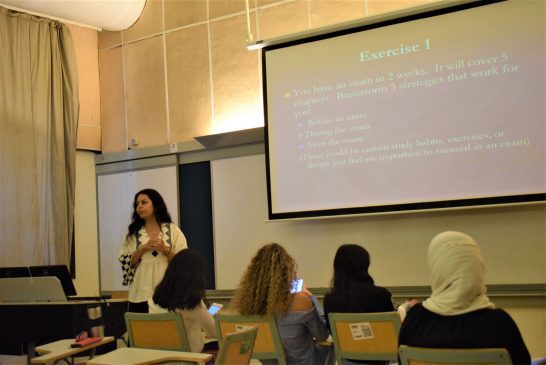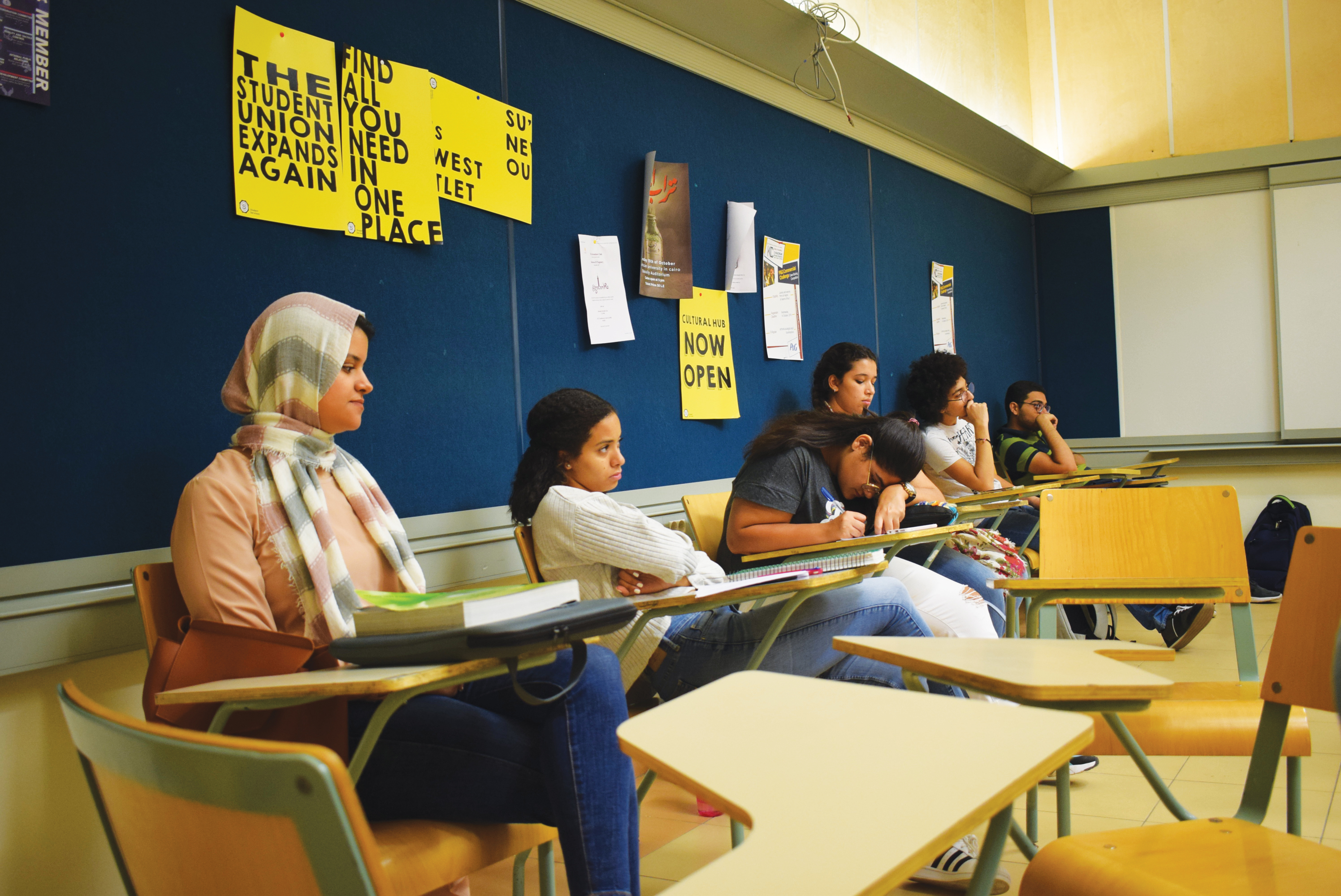Tests, quizzes, presentations, draft research papers – students face a mountain of challenges as they strive for a grade of excellence half-way through the semester.
And it doesn’t get easier.
Students looking to ace the next exam or get a mid-term A often sacrifice their mental well-being to maintain or raise their GPAs.
The pressure students face to excel during the exam period could negatively impact their performance.
To help students make best use of their time and efforts during the midterm period, the Coaching for Learning and Success (CLAS) initiative under the auspices of the Student Well-Being unit hosted a workshop to help students overcome anxiety.
In order to overcome feelings of anxiety, students need to be well prepared and rested. Part of that approach involves positive thinking.
Nourhan Mohamed, a part-time academic counselor at the unit, says that students minimize their chances for success when they believe that bad grades indicate they are failures at university.
“It [a bad grade] is not about me being a good or bad student, it’s not evaluating you as a person,” she said.
She said that while students deal with anxiety differently some coping mechanisms could lead to illnes if not approached properly.
Anxiety, for example, could push some students to avoid eating for an extended period of time, while others may resort to bingeing.

Mohamed advised students to start preparing for their tests a week prior to the scheduled date and then revise. Applying this method of studying will give them time to get help if there are any unclear concepts or ideas that they don’t understand.
Students should also take full advantage of the resources provided by each course. They should not hesitate to contact their professors or teaching assistants for help.
But most importantly, students should not sacrifice sleep; it is during sleeping that the brain stores and processes information effectively. A good night’s sleep can also improve student performance on exams.
Before taking exams students should try to be as relaxed as possible, by listening to music or eating their favorite snack.
They should also pace their study schedules.
“Research has shown that studying in short intervals actually works a lot better than cramming nonstop for 4-5 hours,” said Mehry Gawaly, a psychology graduate student and part-time academic counselor at the Student Well-Being Office.
Gawaly added that the best study method is to focus on the material for 50 minutes then take a break for 10 minutes.
To ensure best results, Gawaly recommended spending the short break doing something productive, instead of just sitting in front of a TV or computer screen. The break could be used to fix a small snack or walk around to refresh.
The point is to avoid panic.
“The minutes before a test I usually panic and try to revise as much as humanly possible, otherwise I feel unprepared and walk into the test with no confidence,” revealed undeclared freshman Hanan Adel.
One way to avoid panic is to read the test thoroughly before immediately starting to answer the questions. This allows students time to distinguish easy questions from those which are more difficult.
“Answering the simplest questions first will make you feel confident,” said Mohamed.
As difficult questions take the longest to answer they should be left toward the end. This means students will not waste all of their test time on one or two questions and leave the rest unanswered.
“Seeing a question that I have no memory of studying at the beginning of the test definitely impacts how I answer, it makes me feel very unprepared,” Adel explained.
Following the test, students should not stress about their performance. They should refrain from checking on their answers or discussing the test material with a classmate as that could only increase their level of anxiety and influence how they perform in other tasks.
Graphic Design junior Sandrine El Salakawy says the workshop gave her practical tips to improve her study cycle.
“I am definitely going to apply all these strategies during the upcoming midterms period,” she said.
